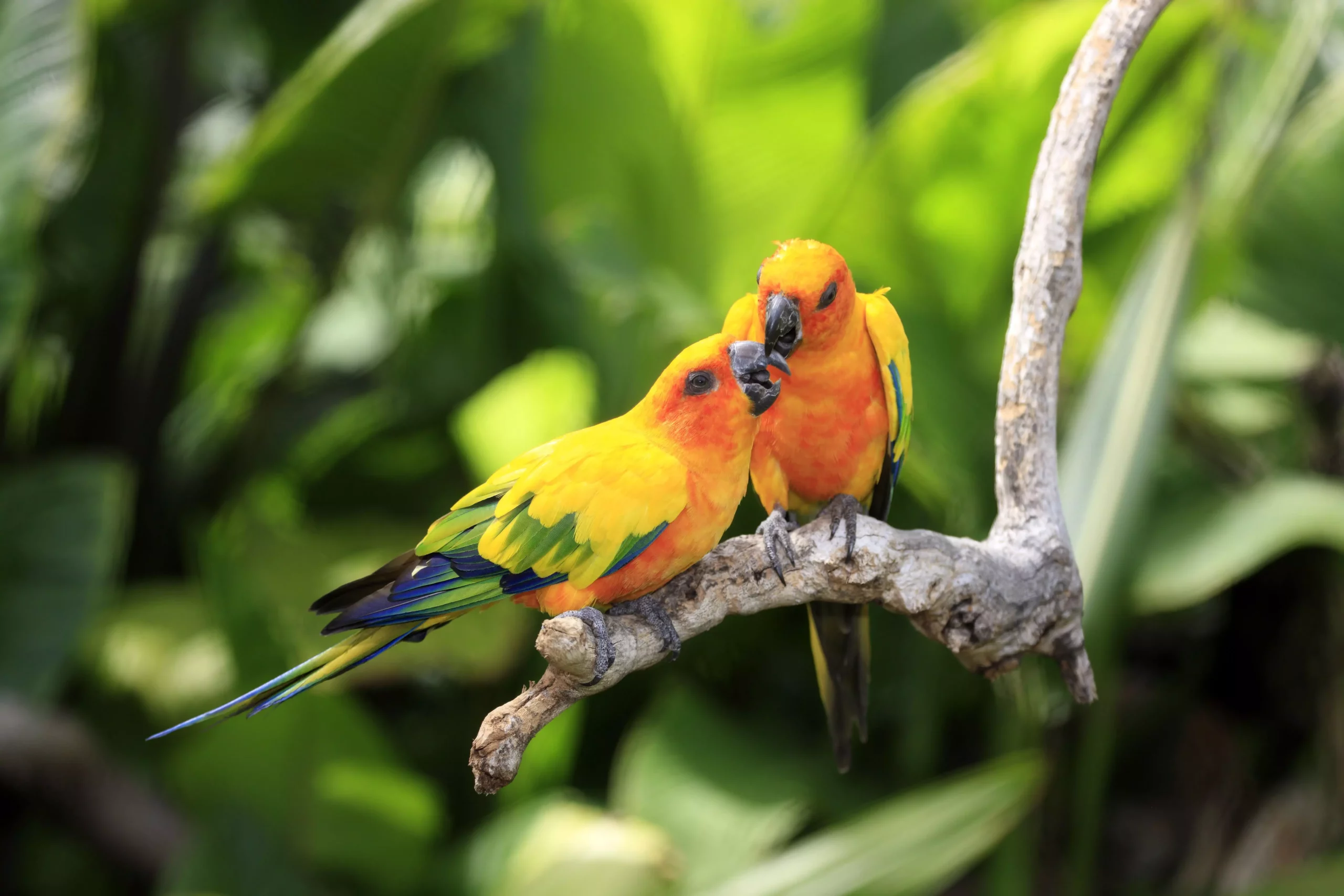Parrots are renowned for their striking colors and engaging personalities. From the lush forests of South America to the arid outback of Australia, these captivating birds come in various hues and sizes, leading to a rich tapestry of species that appeal to bird enthusiasts worldwide. This article delves into the kaleidoscopic realm of parrots, particularly focusing on some of the most colorful species, providing insight into their care, characteristics, and unique behaviors.
Among the most iconic of the avian world is the scarlet macaw, celebrated not only for its flamboyant beauty but also for its intelligence and playful nature. These magnificent birds can grow up to 35 inches in length, with striking red plumage contrasting against vivid yellow and blue markings on their wings and tail. Scarlet macaws require substantial living space, making them better suited for environments that can accommodate their need for physical exercise and mental stimulation. They are highly social, often forming strong bonds with their caregivers. However, potential owners should be aware of their noisy tendencies and the extensive care requirements necessary for long-term health and happiness. After all, these feathered companions can live beyond 50 years, making ownership a significant commitment.
Interesting Features of Red-and-Green Macaws
Red-and-green macaws, often overshadowed by their scarlet cousins, showcase a primary red appearance with hints of green and blue. Their unique coloration can be misleading, as their predominant hue lends itself to their vibrant namesake. Like many large parrots, they require specialized attention and care. Before considering welcoming one into your home, it’s advisable to spend time interacting with such birds, perhaps through local rescues, to better understand their individual personalities and needs. The journey to owning a red-and-green macaw should be approached with caution, as they, too, can live for several decades.
Understanding the Eclectus Parrot
The eclectus parrot presents a fascinating case of sexual dimorphism; the males are adorned in bright emerald green, while the females are draped in striking shades of red and blue. Originating from Australia, these parrots are known for their gentle demeanor and sociable nature. Their unique color differentiation makes it easy for potential owners to determine the sex of the bird. With a manageable size of 17 to 20 inches, they can adapt well to home environments, but they also require ample social interaction. Their intelligence and friendliness contribute to their popularity as pets, and they thrive in active households.
Distinct yet often undervalued, the crimson rosella captivates with its vibrant red feathers and blue accents. These medium-sized parrots require considerable handling and socialization to maintain a friendly disposition. They may not possess the same talking capabilities as other species; however, their ability to whistle and engage with their caregivers is endearing. Given their need for social interaction, potential owners should evaluate their lifestyle to ensure they can meet the rosella’s needs for attention and companionship.
Canaries: A Spectrum Beyond Yellow
Canaries often evoke images of bright yellow birds singing beautifully, yet selective breeding has led to an impressive array of colors, including striking reds and oranges. While these petite birds, generally 5 to 8 inches in length, are not known for their taming or handling, they can still thrive in expansive enclosures, allowing them room to move and exercise. Interestingly, it is exclusively the males that produce the melodious songs that bring joy to many bird enthusiasts. The charm of canaries lies not only in their colors but also in the delightful sounds that only the males can offer.
The Cognizant African Grey Parrot
Notable for their exceptional intelligence, African grey parrots stand out with their predominantly gray feathers complemented by vibrant red accents on their tails. These birds demonstrate remarkable adaptability, requiring a stimulating environment filled with games and challenges to keep them entertained. Owners of the African grey should be prepared for an engaging experience, as they are known to excel at mimicry and can develop impressive vocabularies. Their social nature makes them a sought-after companion, but care must be taken to prevent boredom, which can lead to destructive behaviors.
The vibrant world of parrots extends far beyond mere aesthetics. Each species offers a distinct personality, care requirement, and social dynamic, making them intriguing companions. Whether you are drawn to the spirited scarlet macaw or the charming eclectus, it is crucial to understand the commitment involved in bird ownership. These feathered masterpieces can enrich our lives with joy, color, and companionship, but they also require responsible stewardship to flourish. Anyone considering the adoption of a parrot should conduct thorough research and introspective reflection to ensure they can provide a nurturing environment conducive to the complex needs of these remarkable birds.

